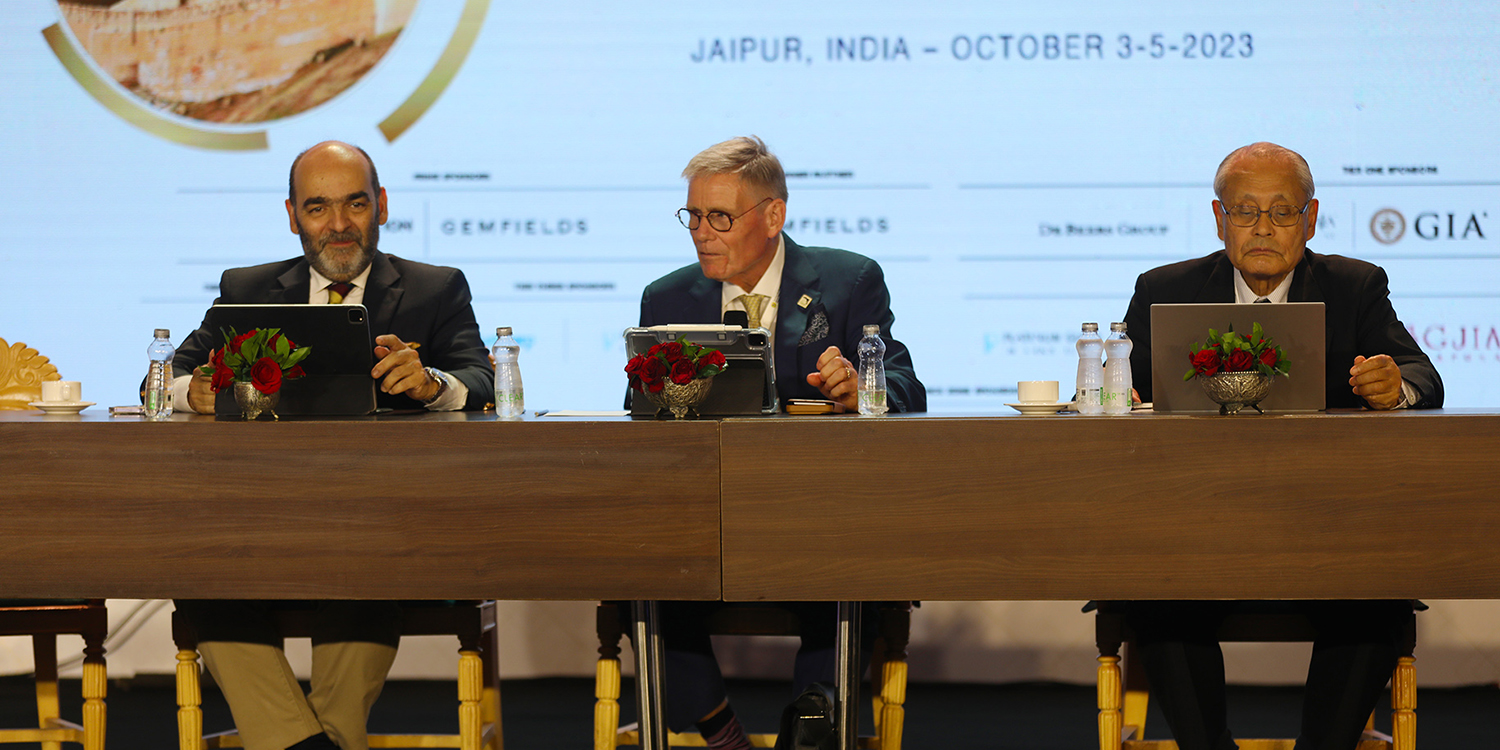Spreading of microplastics erodes quality
of pearl molluscs and nacre, commission is told

Pearl Commission President Kenneth Scarratt, speaking during the Pearl Commission session. He is flanked by Rui Galopim de Carvalho (left), Vice President of CIBJO’s Sector A, and Shigeru Akamatsu, the Pearl Commission’s Vice President,
OCTOBER 4, 2023
The spread of microplastics in the world’s oceans will erode the quality of pearl molluscs and nacre if unchecked, potentially limiting the supply of higher quality natural and cultured pearls in the longer term, said Kenneth Scarratt, President of the CIBJO Pearl Commission, which met on October 4 at the congress taking place in Jaipur, India.
Speaking after a Pearl Commission meeting Mr Scarratt said, “The potential impact is on the quality of the nacre being produced by the molluscs.”
Asked to elaborate on the impact, he added, “The higher quality (pearls) would be proportionately less.”
Mr Scarratt said that efforts to limit or halt the spread of microplastics in the world’s oceans, could reverse any impact.
“The whole point of this is to clean the oceans up,” he said.
“If fishermen didn’t let their nets go into the ocean, there would be less of an issue.”
The Pearl Commission document, presented to the CIBJO Congress, said that one of the most dominant sources of fibres in the marine environment was fishing gear.
“Since the areas studied host significant fishing and shipping activities, these would likely contribute to the larger number of fibres found in the areas,” the study said.
The Pearl Commission panel was chaired by Mr Scarratt, who was joined on the podium by Shigeru Akamatsu, the commission’s Vice President, and Rui Galopim de Carvalho, Vice President of CIBJO’s Sector A.


